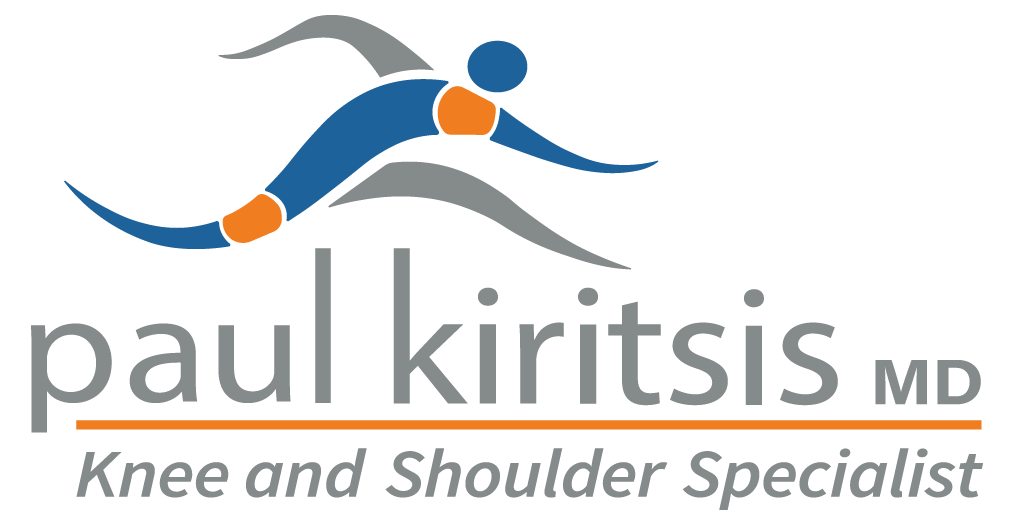Most insurance plans cover shoulder replacement surgery, but coverage details can vary. This post breaks down what to expect from private insurance, Medicare, and potential out-of-pocket costs, answering the question: does insurance cover shoulder replacement surgery?
Key Takeaways
- Shoulder replacement surgery, which includes total and reverse total shoulder replacement, aims to relieve pain and restore joint function, and is suitable for patients with severe joint issues or irreparable rotator cuff tears.
- Insurance coverage for shoulder replacement surgery varies, with private insurance typically covering elective surgeries and Medicare covering medically necessary procedures, but out-of-pocket costs like deductibles, copays, and coinsurance can be significant.
- Preparing for shoulder replacement surgery involves pre-operative tests, following specific medical instructions, and arranging for post-surgery recovery needs, including physical therapy which is crucial for regaining shoulder mobility and strength.
Understanding Shoulder Replacement Surgery
Shoulder replacement surgery, a type of joint replacement, is a procedure designed to relieve pain and restore function in a damaged shoulder joint. Patients who undergo shoulder replacement surgery typically choose between two main types: anatomic total shoulder replacement and reverse total shoulder replacement.
In a conventional total shoulder replacement, the procedure mimics the normal anatomy. This type of surgery is typically recommended for patients with severe shoulder pain and limited mobility due to arthritis or other joint issues.

On the other hand, reverse shoulder replacement, also known as reverse total shoulder replacement, switches the positions of the ball and socket. This approach relies on the deltoid muscle instead of the rotator cuff muscles to move the arm. Candidates for reverse total shoulder replacement often include those with a completely torn rotator cuff that cannot be repaired or those with cuff tear arthropathy.

Precision Shoulder Replacement
The field of shoulder surgery is constantly evolving, with innovative approaches like Precision Shoulder Replacement leading the way. This procedure utilizes advanced 3D surgical planning software and next-generation surgical techniques, including a patent-pending method for repairing the subscapularis. The goal is to provide a more reliable and durable repair, ensuring improved outcomes and faster recovery.
This approach focuses not just on the immediate aftermath of surgery but on the long-term impact, to help enhance the longevity and effectiveness of the shoulder replacement.
Patients undergoing Precision Shoulder Replacement benefit from personalized treatment plans and superior postoperative pain management, thanks to innovations like EXPAREL anesthesia. This commitment to using cutting-edge technology and empowering patients with knowledge sets the Precision Shoulder apart from conventional shoulder surgeries.
Health Insurance Coverage for Shoulder Replacement Surgery
The extent of coverage and out-of-pocket expenses for shoulder replacement surgery can differ significantly among health insurance policies. However, many prominent policies do cover the procedure, acknowledging its necessity in alleviating pain and restoring function.
Even with insurance, patients might encounter substantial out-of-pocket expenses such as deductibles, copays, and coinsurance, which can accumulate rapidly. Hence, understanding the details of your insurance plan is pivotal to prevent unforeseen financial liabilities.
Private Insurance Plans
Private insurance plans typically cover elective surgeries like shoulder replacement, but the specifics can differ significantly across providers and plans. Some plans may cover a higher percentage of the surgery costs, while others might have higher deductibles or copays.
It is important to examine your insurance plan’s details and consult your insurance provider to comprehend the specific coverage for shoulder replacement surgery. Such steps will assist you in estimating potential out-of-pocket expenses and ensuring financial readiness for the procedure.
Out-of-Pocket Costs
Out-of-pocket costs for shoulder replacement surgery under private insurance often include deductibles, copays, and coinsurance. Patients typically need to pay their deductible upfront, an amount they must cover before the insurance benefits commence.
Once the deductible is met, the majority of insurance policies cover a portion of the surgery bill, with the patient being responsible for the remaining balance. Exact out-of-pocket costs can be challenging to estimate before the procedure, but your doctor’s billing office can usually provide a written estimate.
Medicare Coverage for Shoulder Replacement Surgery
Medicare provides coverage for shoulder replacement surgery, given that a doctor considers it medically necessary. This means the surgery must be required to prevent ongoing damage caused by a disease or injury.
Various components of Medicare cover different aspects of the surgery and its associated costs. Comprehending how Medicare Parts A, B, C, and D, and Medigap policies apply to shoulder replacement surgery can assist in managing the procedure’s financial aspects.
Medicare Part A
If shoulder replacement surgery is deemed medically necessary, Medicare Part A will cover a portion of the cost for the procedure. This coverage is available to eligible beneficiaries. This includes coverage for inpatient surgery, hospital stays, and skilled nursing care related to the shoulder replacement procedure.
Medicare Part B
Medicare Part B covers a portion of the cost for arthroscopic shoulder surgery when medically necessary. This part of Medicare also covers pre-and post-surgery doctor visits, which are essential for a successful recovery.
Additionally, Medicare Part B provides coverage for physical therapy and durable medical equipment needed after shoulder replacement surgery, helping patients regain mobility and strength in their shoulder joint.
Medicare Part C (Medicare Advantage)
Medicare Advantage plans, also known as Medicare Part C, are required to cover at least what Original Medicare covers for shoulder replacement surgery, whether it is inpatient or outpatient. These plans may also provide additional benefits, such as prescription drug coverage, which can be crucial for managing post-surgery pain.
Costs for shoulder replacement surgery under Medicare Part C will vary depending on the specific plan and typically involve some form of copay. It’s advisable to check with your specific plan to understand the coverage and costs involved.
Medicare Part D
Medicare Part D covers prescription drugs, including those taken after shoulder replacement surgery, such as pain medications prescribed post-surgery. Each plan includes a formulary that lists the medications covered and their costs, making it essential to review this list to understand what specific medications are covered.
Medigap Policies
Medigap plans may cover out-of-pocket costs such as copays, coinsurance, and deductibles not covered by Original Medicare. These supplemental plans can be a valuable addition for those looking to minimize their financial burden associated with shoulder replacement surgery.
Additional Costs and Considerations
While insurance may cover a significant portion of shoulder replacement surgery costs, additional expenses can add up. These costs can include preoperative consultations, follow-up visits, and specialized equipment like slings.
The location where the surgery is conducted can also influence the total cost, with expenses varying from hundreds to thousands of dollars. Being aware of these additional costs and planning accordingly can help you avoid unexpected financial strain.
Anesthesia and Hospital Procedures
Anesthesia for shoulder surgery is typically billed. The cost of anesthesia can vary widely depending on the type and duration of the surgery.
Hospital procedural costs, such as imaging and lab tests, can add substantial expenses that are sometimes not fully covered by insurance. You will want to discuss these potential costs with your healthcare provider to get a comprehensive estimate.
Post-Surgery Medications
The medications prescribed after surgery, such as pain relievers, anti-inflammatories, and antibiotics, can range in cost. While insurance plans may cover a portion of these costs, out-of-pocket expenses can still be significant, especially if specialty drugs are required.
Physical Therapy
Physical therapy, which typically involves numerous sessions spanning several months, is critical to get the best recovery following shoulder surgery. Although most health insurance companies cover part of the cost, patients usually need to contribute a copay per session.
Medicare Part B generally covers 80% of the cost of physical therapy, with the remaining 20% to be paid out-of-pocket or through supplemental insurance.
Seeing A Designated a Preferred Shoulder Surgeon by Insurance Carriers
Selecting the right shoulder surgeon is really important for a successful shoulder replacement surgery. A few high-volume shoulder surgeons such as myself have earned recognition as a preferred surgeon by several insurance carriers. This designation reflects his professional excellence and commitment to patient-focused care.
Research supports that surgeons with higher case volumes see lower complication rates and improved patient outcomes. Be sure to find the best shoulder surgeon you can before undergoing shoulder replacement surgery. You want to find someone who demonstrates a consistent delivery of high-quality care, has a lot of experience in shoulder replacement, combined with a dedication to patient safety.
Preparing for Shoulder Replacement Surgery
Adequate preparation is fundamental to the success of shoulder replacement surgery. A series of pre-operative tests are usually scheduled one to two weeks before surgery. Patients should also ask their doctor whether they should take their daily medications on the day of the procedure.
Bringing necessary items for the hospital stay, such as a good book, phone, and charger, can make the experience more comfortable. Preparing meals ahead of time for convenience during recovery is also advisable.
Pre-Surgery Checklist
Several weeks before surgery, patients should undergo a physical exam to assess their heart and overall health. Doctors may recommend stopping blood thinners and anti-inflammatory medications, including aspirin, at least one week before surgery.
Patients receive specific instructions about their daily medications during their pre-operative visit. Preparing a hospital bag with items like a photo ID, insurance cards, and comfortable clothing is also essential.
Day of the Procedure
Patients should avoid eating or drinking after midnight on the day of the procedure. It is also essential to confirm the surgery time and arrival time with the surgical team a day before the procedure.
Post-Surgery Recovery
Recovery from shoulder replacement surgery typically takes at least six months to a year, though advancements such as Precision Shoulder Replacement are designed to facilitate a smoother and faster recovery. Patients can usually shower within 48 hours post-surgery but must be careful not to fall or injure the joint. Physical therapists significantly assist patients in learning specific exercises and restrictions for ongoing recovery at home.
Written instructions for exercises are provided upon discharge from the hospital, ensuring patients have a clear roadmap for their recovery journey. Adhering to these guidelines and attending regular physical therapy sessions are vital for regaining strength and mobility in the shoulder joint.
Alternative Treatments and Their Coverage
For those exploring non-surgical options, alternative treatments like cortisone injections and stem cell therapy offer potential relief from shoulder pain and severe pain. Economic evaluations often analyze these treatments in terms of costs and patient outcomes.
Cortisone injections, commonly used to alleviate shoulder joint pain and inflammation, are usually covered by insurance if considered medically necessary. These injections deliver steroids directly to the affected area, providing pain relief and reducing inflammation, and are usually performed at an orthopedic surgeon’s office, with effects lasting between 3-6 months.
Choosing the Right Insurance Plan
Selecting an appropriate insurance plan requires an estimation of your yearly healthcare needs, encompassing major procedures such as shoulder replacement surgery. Assess whether the insurance plan includes your preferred hospitals, clinics, or healthcare professionals.
Focus on trusted and accurate information sources such as Healthcare.gov for Affordable Care Act Marketplace options, Medicare.gov for Medicare plans, and Medicaid.gov for Medicaid plans. Consider value-added benefits like free health assessments, virtual care, or tobacco cessation counseling offered by some insurance plans.
Insights from family and friends can also shed light on aspects such as customer support and the ease of navigating various insurance plans offered by an insurance company.
Summary
Navigating the world of shoulder replacement surgery and insurance coverage can be complex, but being well-informed can make the process smoother. Understanding the types of shoulder replacement surgeries, the specifics of insurance coverage, and the potential out-of-pocket costs are crucial steps in preparing for the procedure.
Whether you opt for traditional shoulder replacement, Precision Shoulder Replacement, or explore alternative treatments, ensuring you have the right insurance plan and a trusted shoulder surgeon can make a significant difference in your journey to recovery. Stay proactive, ask questions, and don’t hesitate to seek the best care possible for your shoulder health.
Frequently Asked Questions
Does Medicare cover shoulder replacement surgery?
Yes, Medicare covers shoulder replacement surgery if it is deemed medically necessary by a doctor, with different parts of Medicare covering various aspects of the surgery and related costs.
What are the out-of-pocket costs for shoulder replacement surgery?
The out-of-pocket costs for shoulder replacement surgery can include deductibles, copays, and coinsurance, and may vary depending on the insurance plan you have. Be sure to check with your insurer for specific details.
What is Precision Shoulder Replacement?
Precision Shoulder Replacement was designed by and is exclusively performed by Dr. Paul Kiritsis, and is an innovative approach that utilizes advanced 3D surgical planning software and state-of-the-art techniques for improved outcomes and faster recovery.
Are cortisone injections covered by insurance?
Yes, most insurance companies cover cortisone injections if medically necessary, but out-of-pocket costs may vary.
How long is the recovery period for shoulder replacement surgery?
The recovery period for shoulder replacement surgery usually takes at least six months to a year, and physical therapy is essential for regaining mobility and strength. A professional and consistent approach to rehabilitation is key for a successful recovery.
Disclaimer: The information provided in this post is for informational purposes only and does not constitute insurance or financial advice. For professional advice, please consult with a qualified insurance or financial advisor.





